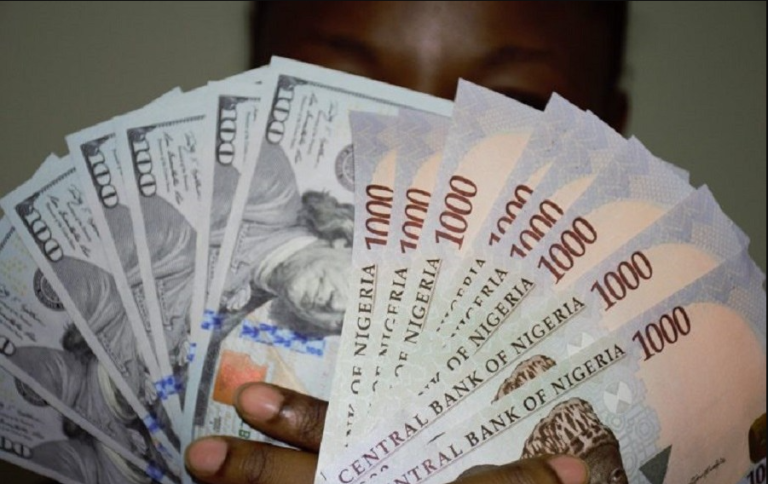The Naira experienced a notable appreciation against the US dollar on February 26, 2024, as official exchange rate strengthened by 5.22% to N1582.94/$1.
However, the Naira experienced heightened demand pressure, resulting in an intra-day high of N1,778 against the dollar.
This increase exacerbated the ongoing depreciation trend of Nigeria’s currency, highlighting the volatility and challenges faced in the foreign exchange market.
Data from the Nigerian Autonomous Foreign Exchange Market (NAFEM), the official platform for foreign exchange trading, revealed a significant appreciation of the domestic currency by 5.22%, with the Naira concluding the day at N1,582.94 per dollar.
- This represents an N82.56 drop or a 5.22% increase in the local currency compared to the N1,665.5 closed on Friday.
- The intraday high recorded a record high of N1778/$1, while the intraday low was N1300/$1, representing a wide spread of N478/$1.
- According to data obtained from the official NAFEM window, forex turnover at the close of the trading was $154.16 million, representing a 1.47% increase compared to the previous day.
- Similarly, the Naira appreciated against dollar in the parallel forex market, where forex is unofficially traded, with the exchange rate quoted at N1,650/$1, reflecting a 6.06% inecrease from the N1,750 rate it closed at the previous day.
The Great British Pound (GBP) stood at £1/N2100, an increase from £1/N2,260 recorded the previous day, this marks a notable increase of 7.62% compared to the rate recorded the previous day.
- Additionally, the Naira appreciated against the Euro by 5.95%, closing at N1850/EUR1 compared to N1960/EUR1 reported the previous day.
In the cryptocurrency market where forex is sold using stablecoins, the Naira also settled at N1,637.30/$1.
Nairametrics reported that the Central Bank of Nigeria (CBN) plans to introduce stringent measures on the purchase of foreign currencies through Bureau De Change (BDC) operators, with a specific focus on transactions related to overseas education and medical expenses.
As part of the apex bank’s revised regulatory guidelines for BDCs in Nigeria, there will be a cap on foreign currency purchases for school fees at $10,000 per customer annually.
This process requires the transaction to be conducted through the BDC’s domiciliary account with a Nigerian bank, ensuring direct payment to the educational institution.
The proposed guidelines read:
- “BDCs may sell foreign currency up to the equivalent of USD10,000 to a customer for school fee once a year. Such fee, which shall be transferred from the BDC’s domiciliary account with a Nigerian bank, shall be paid directly to the school.”
It also stipulates that such transactions must be accompanied by a set of documents: a duly filled out e-Form A, proof of admission or course registration, the educational institution’s bill or invoice, and, for postgraduate studies, a copy of the undergraduate degree certificate or an officially verified statement of results.

